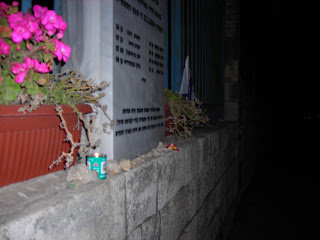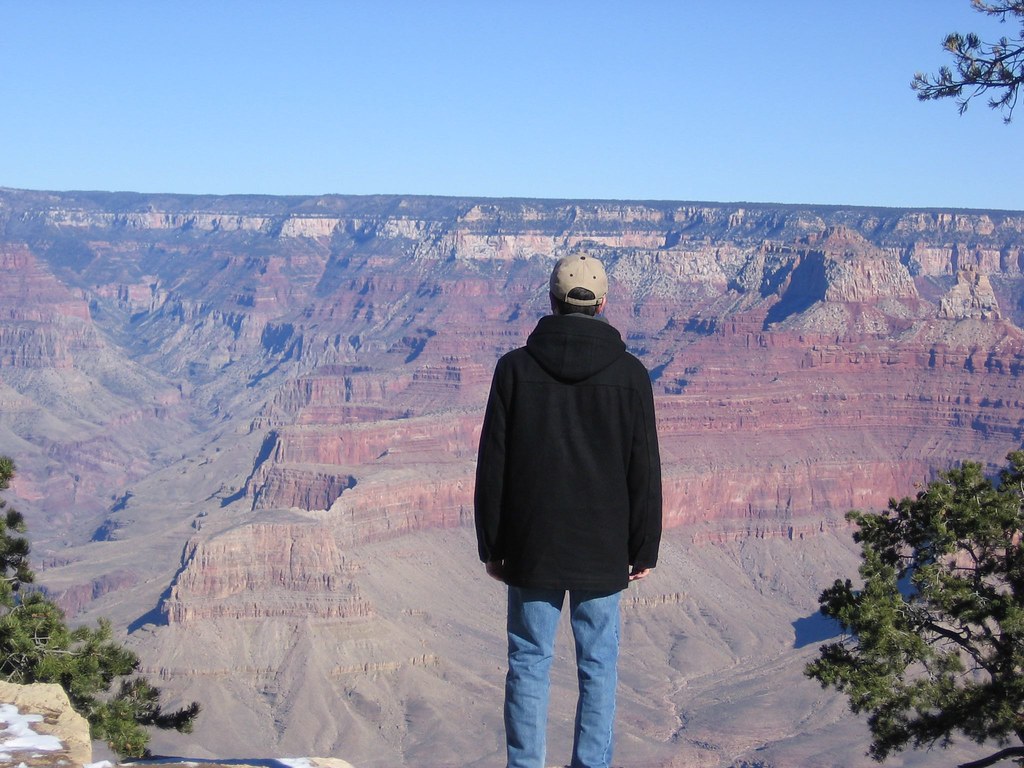So here we are again, on the eve of another Yom HaZikaron, (Israeli Memorial Day), only this time it's different. At least, for me, it's different.
Last time, it was the Other People we were mourning - people from stories, people from history. Even when I was living in a Yeshivat Hesder, where many of my peers were soldiers on active duty, even (and I truly hate to admit it) when those I knew were affected or even killed, I still had a level of detachment. I see that now, because I can feel that falling away. 
And now, I look at the soldiers still protecting us, mourning their fallen comrades, and realize I could be one of them. Because I recently received a tzav rishon, the first step in the army draft process. Now, I know that at 24 years old (having moved here at 23), I won't be assigned anything resembling a standard tour of duty, and I might not end up getting drafted at all. But I'm on the list, and when I saw that letter, it affected me more deeply than I'd expected. I mean, I knew it was coming, but like a lot of things in my life lately, seeing it out-there-in-the-world caught me by surprise. There it was. The Israeli army, talking to me, asking me whether I should join them. Israelis are 'us' now, not 'them.'
This morning, I opened the newspaper and saw two stories plastered across the front page: "Israel Remembers the Fallen, page 2," and "Kassam Rocket hits House in Sderot, page 3." One can't help but be struck by the odd juxtaposition. We are remembering those fallen in the past even as we tearfully add the recently killed to the list. I've heard it said once that Israel's problem is that it remembers too much. Past injustices and hatreds and problems don't go away, because we're always caught up in what happened, never able to put it behind us. That may be so - I don't know - but I wonder if we really have a choice. We aren't just remembering the past; the past is constantly protruding uninvited into the present. We're putting flowers on the graves of the fallen, while missiles crash into our houses.
And the flowers. 600,000 of them are being laid on graves tomorrow, according to the newspaper. 600,000. A significant number: the population of battle-ready Jewish males that left Egypt for the Land of Israel, and roughly the population of Jews in the very same Land of Israel in 1947, right before the creation of the state. 
Put the past behind us? Some days I wish we could. I really do. But it's simply not possible.
The question here, the real important question, is what do we do on Yom HaZikaron? Because I think this says a lot about us - how we remember, how we mourn. Rather than succumb to the bitterness that, arguably, we have a right to, we hold our ceremonies, and we tell our stories. We honor our fallen and commit ourselves to pursue the values they died fighting for. And we sound a siren, and for a full minute, everything else stops. Everything listens to the siren wailing for potential lost, families torn asunder, and rivers of tears shed. The same siren is sounded on Yom HaShoah, Holocaust Remembrance Day, but the two couldn't be more different. True, both are for Jews killed by their enemies, and both are a way of remembering and honoring the departed. But while the deaths in the Holocaust stand silently in defiance of explanation, dragging reason kicking and screaming from the room, the deaths in Israels wars are a result of people fighting for Israel. They're a result of people living lives of meaning, lives of purpose, lives of dedication to something greater than themselves. And when you look at it that way, it's a bit easier to staunch the flow of bitterness. When you look at it that way, it makes a lot more sense that at the moment that Yom HaZikaron ends, Yom HaAtzma'ut (Israeli Independence Day) begins. We're not just fighting the wars of the past; we're also living the dream of the past. The two are linked.
Last night, I heard in great detail, the story of Roi Singer, a doctor who was among the first miliumnikim (reservists) sent into Lebanon last summer. As he told his story, I tried to imagine myself in his shoes, performing surgery under fire, or as one of the soldiers he was treating. It was a weird feeling, to say the least. Yes, I know: I likely won't see active combat any time soon. But there's still that letter from the army sitting on my desk. I still have a doctor's appointment on Wednesday to see if I'm fit for combat. And I'm still going to the enlistment office in a week or so, as ordered by the government. No matter how this turns out in my particular case, that little letter was an important one to me. Here's the government saying, in its own bureaucratic way, "like it or not, you're part of our story now, not just a spectator. You can't stand on the sidelines anymore; we have more than enough people there. It's time to be an active participant." I just hope I'm up to the task.

2 people hopping:
Wow.
Double WOW! Just an amazing piece.
>> Join the fray <<